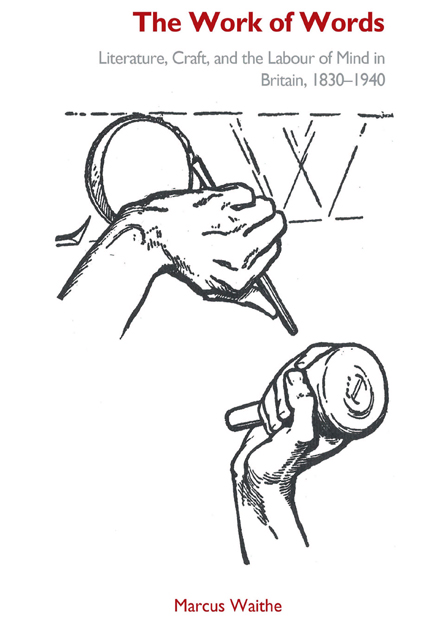Introduction
Published online by Cambridge University Press: 13 April 2023
Summary
In a revised edition of his influential compendium The Literary Character (1818), Isaac D’Israeli observes that it was Jean de La Bruyère who ‘discovered the world’s erroneous estimate of literary labour’. ‘There requires’, he reports, ‘a better name to be bestowed on the leisure (the idleness he calls it) of the literary character’, so ‘that to meditate, to compose, to read and to be tranquil, should be called working.’ Though translated from a seventeenth-century source, these words propound a distinctly nineteenth-century approach to the problem of writerly identity, one that foregrounds work by renaming and redefining disputed territory. D’Israeli begs the question in the process: he refers to ‘literary labour’ as if it were a settled category, and his easy movement between thinking, composing, and reading goes unexplained. But even these cross-currents are pertinent. They express enduring uncertainty about whether literary effort dwells in the mind, on the page, or elsewhere. And they evince a corrective focus on language, a medium susceptible to reform because coined and reissued by writers themselves.
Understanding such claims requires an appreciation of what authors thought the world was erroneously estimating. In Absent Minds (2006), Stefan Collini distinguishes the ways that intellectuals talk about themselves – notably, the various ‘Fall’ narratives unwittingly or deliberately perpetuated – from the historical record. This, it turns out, reveals a less tortured social experience than we tend to expect. The history of legislation governing literary reward substantiates this analysis. Discussing Talfourd’s second reform to the Copyright Act 1814, Martha Woodmansee notes the scale of its success in ‘confer[ring] dignity on the profession of authorship’. Brad Sherman and Lionel Bently, likewise, document the ‘privilege’ in law accorded to ‘the labour of mind over that of the body’. In particular, they show that a legal window opened briefly in the mid-nineteenth century, when mental labour was not just recognised by the courts but regarded as a test of ownership. This study is influenced by such revisionist accounts, but it focuses on the action of writing (and therefore ‘the writer’) rather than on the figure of the ‘intellectual’. And it proceeds on the assumption that anxieties about the life of the mind are revealing – and indeed subtly causative – even where they are misplaced. Equally, it is clear that writers’ legal advantages conferred limited reputational benefit.
- Type
- Chapter
- Information
- The Work of WordsLiterature, Craft, and the Labour of Mind in Britain, 1830-1940, pp. 1 - 18Publisher: Edinburgh University PressPrint publication year: 2023



